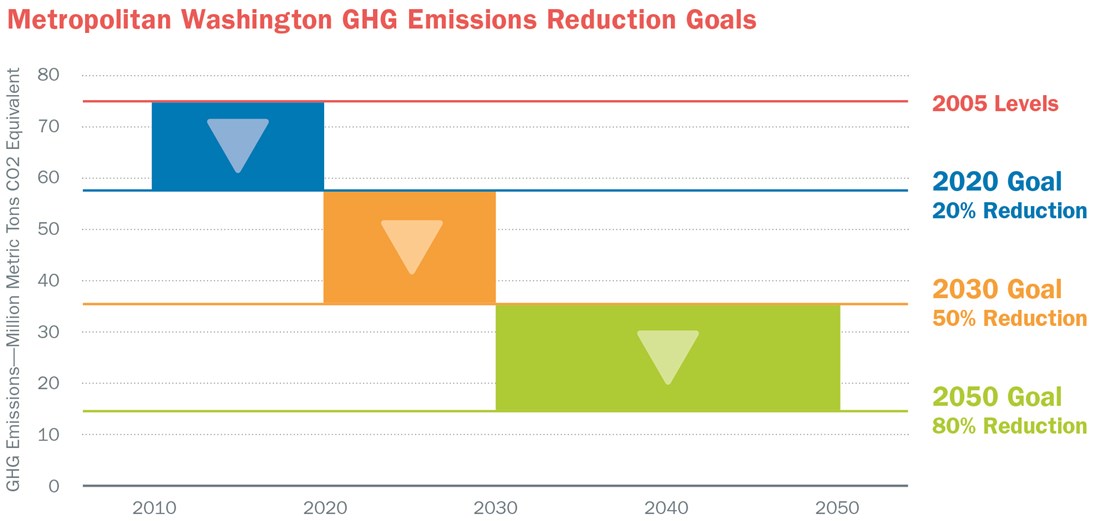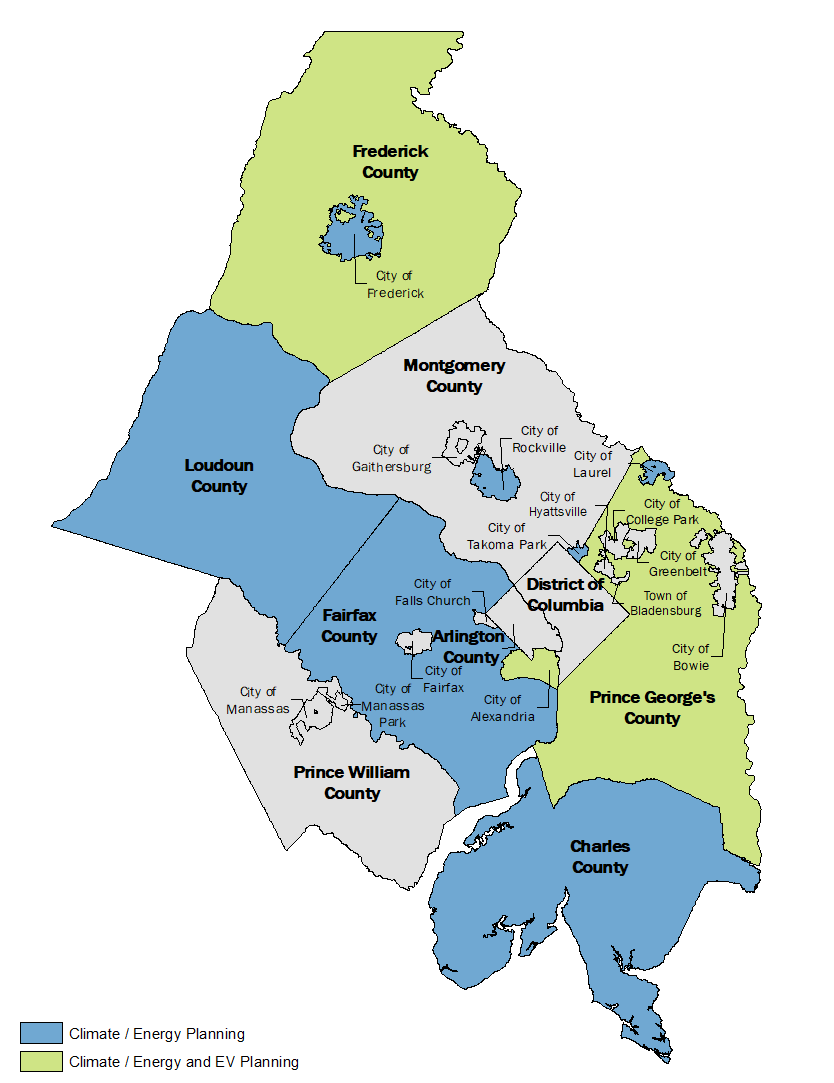The COG Board of Directors is shifting from climate planning to implementation in 2022, devoting its first in-person meeting in more than two years to exploring actions the region can take together to meet its climate goals.
The COG Board of Directors has outlined planning priorities for the next decade in its Region United: Metropolitan Washington Planning Framework for 2030, and meeting regional climate goals is central to that vision. The region’s 2030 Climate and Energy Action Plan outlines more than 30 strategies for getting there; local officials expressed interest in devoting their time on the board this year to strategies that will have a big impact and those that require close collaboration.

According to COG Deputy Executive Director for Metropolitan Planning Kanti Srikanth, preliminary analysis shows the region missed its 2020 greenhouse gas reduction goal by just one or two percent. And while that indicates that the region is on the right track, Srikanth reiterated that meeting a 50 percent emissions reduction below 2005 levels—the 2030 GHG reduction goal—will take the entire region “working together expeditiously.”
![3[1]](/assets/1/6/MainFCKEditorDimension/3[1].jpg)
COG’s most recent inventory shows more than 90 percent of the region’s GHG emissions come from residential and commercial building energy consumption and transportation. COG staff presented the board with three potential areas of opportunity for greater regional collaboration aligned with addressing this finding.
First, accelerating electric vehicle (EV) deployment and building a region-wide network of EV charging infrastructure —including streamlining the zoning and permitting processes as needed. Second, focusing more on clean energy by committing to procure electricity for government operations from green energy sources, deploying solar on government buildings, and incentivizing and supporting residents and businesses to install solar. And finally, building energy efficiency, starting with ensuring local government buildings and schools lead by example, committing to tracking that data regionwide, building energy performance standards, and supporting adoption of most recent building codes.
COG Board Chair and Arlington County Board Vice Chair Christian Dorsey explained that these actions will not solve the region’s climate challenges alone but are areas to “focus engagement to deliver outcomes.”
The three strategies are also appealing because there could be federal aid available in the 2021 Infrastructure Investment and Jobs Act to help move them forward.
![4[1]](/assets/1/6/MainFCKEditorDimension/4[1].jpg)
COG Board Vice Chair and District of Columbia Councilmember Charles Allen said a regional shift on EVs will be especially “crucial” and called on his colleagues to push forward in this area.
“I’m going to try to put my energy and my thoughts into what is it we have to do from a policy perspective, from an incentive perspective, and from a flat-out requirement perspective,” said Allen.
In terms of next steps, the board asked staff to reach out to COG members to determine their readiness to contribute to and be part of a regional level EV deployment plan development effort. This effort could identify the number of charging stations in the region and the optimum locations for additional stations, creating a reliable, widespread EV charging infrastructure in the region.
These efforts join other ongoing innovative local efforts that contribute to the regional climate goal.
For example, the board heard from Loudoun County about its Environmental Commission (EC). The EC is made up of representatives from county utilities, schools, subject matter experts, non-profits, and residents, and advises the Board of Supervisors on priority environmental issues from natural resources, to environmental justice, to engaging with the public. Montgomery County discussed its comprehensive Climate Action Plan and work plan for the year, and emphasized the ways that the county is putting equity at the forefront of this work.
COG continues to help its member governments accelerate action on climate by assisting on local climate and energy action plans and electric vehicle (EV) fleet policies and plans. For example, some have contracted COG staff to help with market research and data analytics, workshops, coalition building, or planning related to government operations or community-wide engagement activities, and have used COG's cooperative contract for planning support from consultants.
